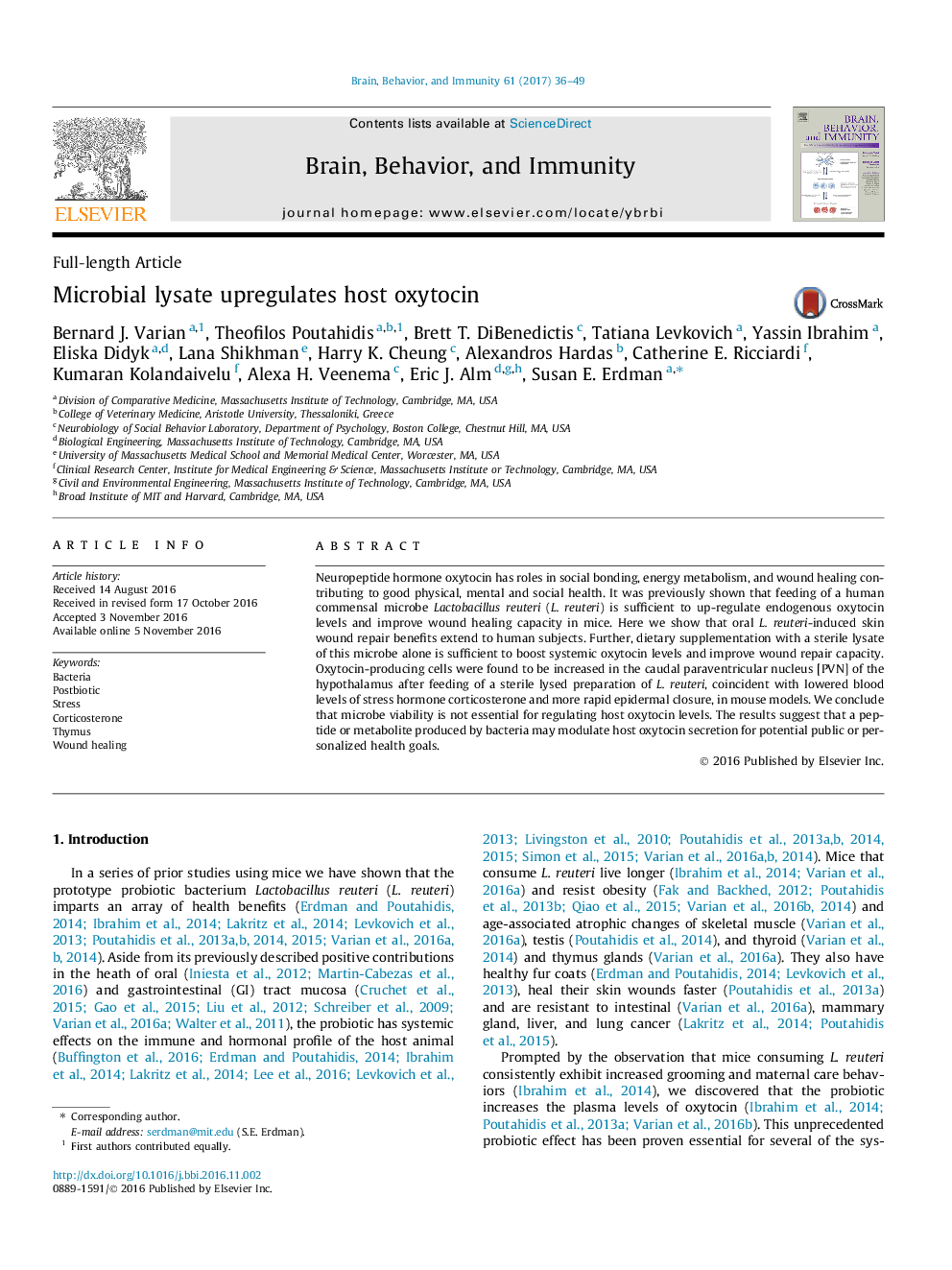| کد مقاله | کد نشریه | سال انتشار | مقاله انگلیسی | نسخه تمام متن |
|---|---|---|---|---|
| 5040687 | 1473906 | 2017 | 14 صفحه PDF | دانلود رایگان |
- Mice fed with lysed L. reuteri had increased hypothalamic oxytocin-producing cells.
- L. reuteri increases oxytocin and decreases corticosterone plasma levels in mice.
- L. reuteri-treated mice heal their skin wounds faster and have larger thymus glands.
- Edible L. reuteri improved wound healing capacity of women in a small pilot study.
- Edible postbiotics hold promise as strategy for promoting systemic good health.
Neuropeptide hormone oxytocin has roles in social bonding, energy metabolism, and wound healing contributing to good physical, mental and social health. It was previously shown that feeding of a human commensal microbe Lactobacillus reuteri (L. reuteri) is sufficient to up-regulate endogenous oxytocin levels and improve wound healing capacity in mice. Here we show that oral L. reuteri-induced skin wound repair benefits extend to human subjects. Further, dietary supplementation with a sterile lysate of this microbe alone is sufficient to boost systemic oxytocin levels and improve wound repair capacity. Oxytocin-producing cells were found to be increased in the caudal paraventricular nucleus [PVN] of the hypothalamus after feeding of a sterile lysed preparation of L. reuteri, coincident with lowered blood levels of stress hormone corticosterone and more rapid epidermal closure, in mouse models. We conclude that microbe viability is not essential for regulating host oxytocin levels. The results suggest that a peptide or metabolite produced by bacteria may modulate host oxytocin secretion for potential public or personalized health goals.
Journal: Brain, Behavior, and Immunity - Volume 61, March 2017, Pages 36-49
